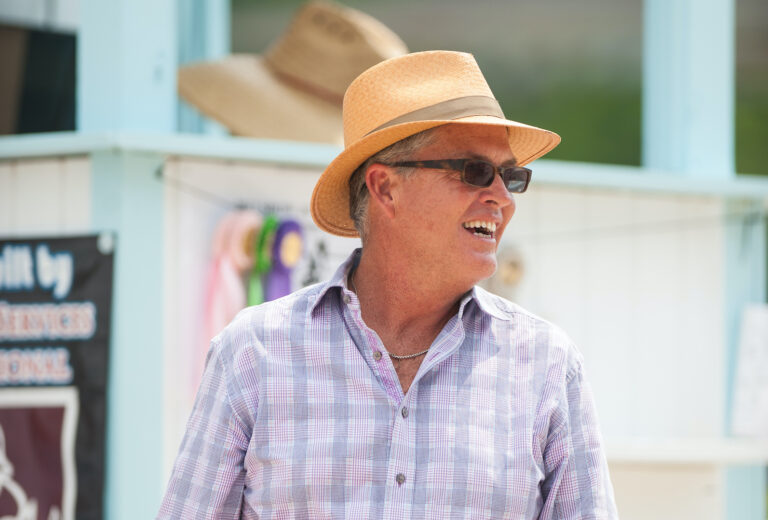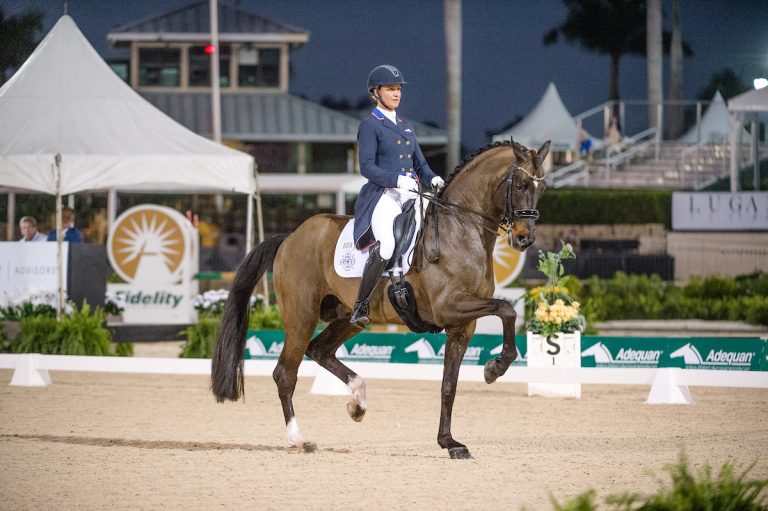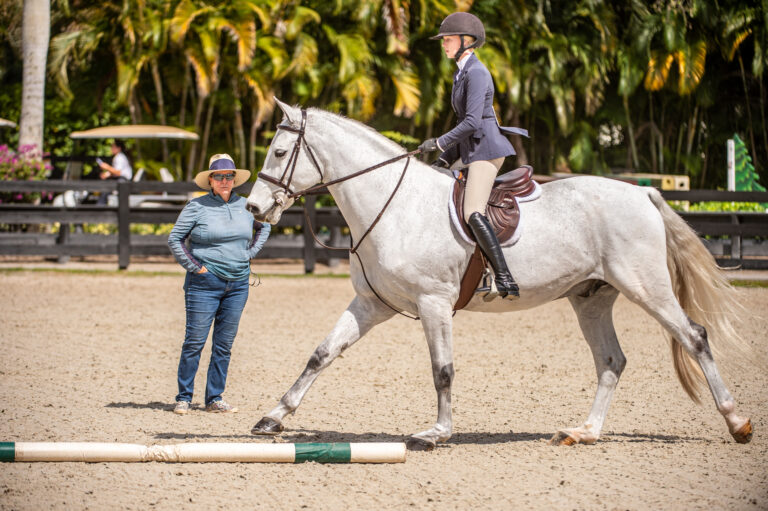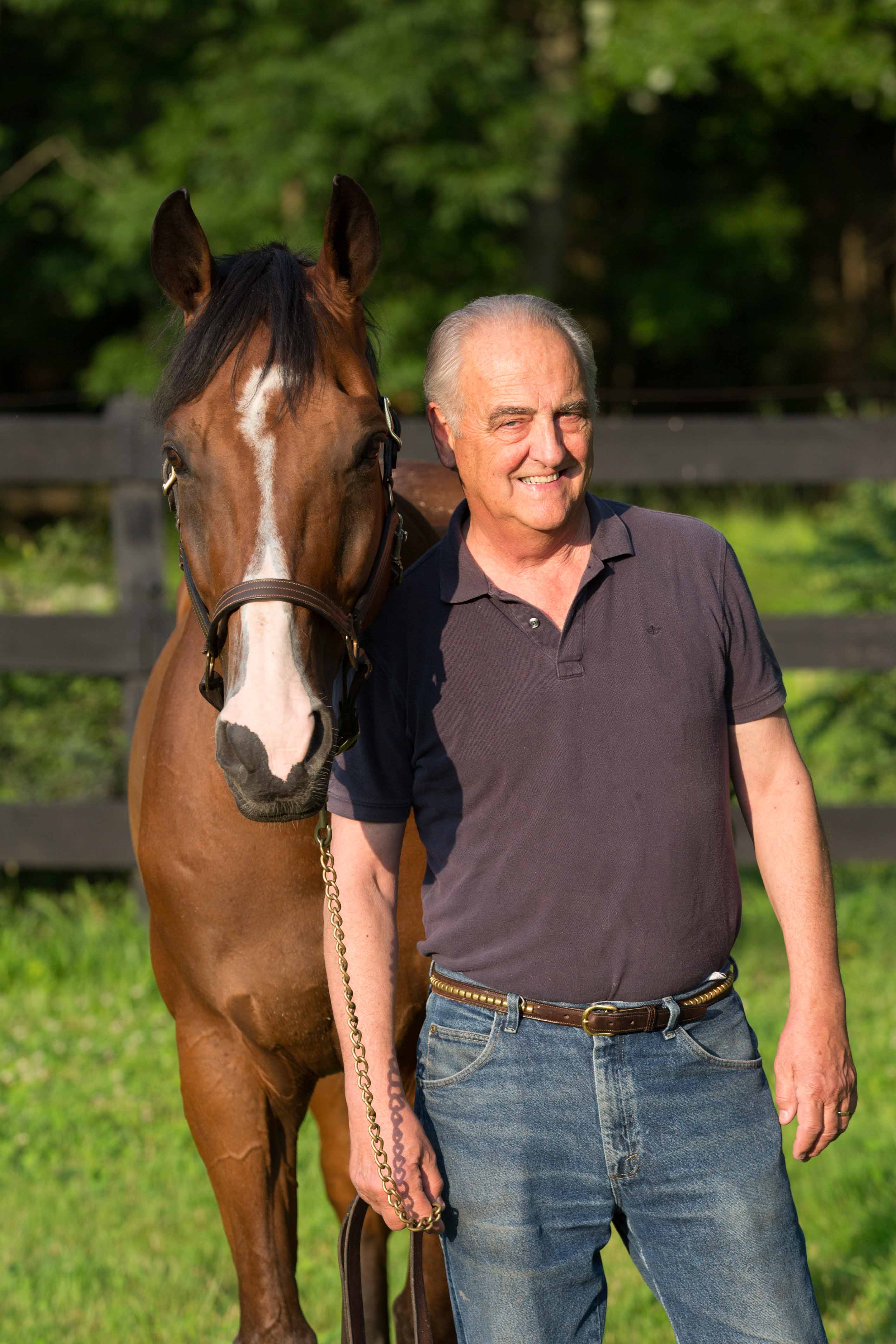
© John Pitocco
Joe Dotoli received the 2017 U.S. Equestrian Federation Lifetime Achievement, a recognition for nearly 50 years of his leadership in the equine-industry sports as a professional rider, trainer, judge, author and horse-show manager. He started his career in 1968, and with his wife, Fran, started Young Entry Stable in Medfield and Hamilton, Massachusetts. He was the trainer for Olympic gold medalist Peter Wylde during Peter’s Junior career and his riders and horses have won championships at nearly every major hunter/jumper show in the country. His eldest daughter, Annie Dotoli, is now also a professional rider/trainer.
Joe was instrumental in forming the New England Equitation Championships in 1976, including the NEEC’s three-part horsemanship challenge, a format that has been adopted around the country. He was also a major contributor to the adoption of mandatory safety helmets and ASTM testing. For these contributions, he was awarded the USEF Distinguished Service Award in 2001.
Joe serves on the U.S. Hunter Jumper Association board of directors and is active on numerous industry committees dedicated to horse and rider safety. He and Fran have two children and three grandchildren.
Practical Horseman: How did you first get involved with horses?
Joe Dotolli: Until high school, I had no contact with horses. My family was in the restaurant business in Boston. My sister’s best friend, Maryanne, had gone to Europe for grad school and got involved in horses. She was in our kitchen one morning lamenting the fact she now had a horse in Massachusetts and no one to ride with. She was pretty and I was not too busy, so I said, “Of course, I will go with you.”
I can still vividly remember going into that barn; the smell and the feel of it. I thought, Wow, how did I miss this? This is a place I want to be. I never really stopped from that moment.
PH: What do you think is most important to know about a horse?
JD: Horses, for the most part, are pretty smart, but there is a huge range in the intelligence of horses. Some are really slow, some are a little too smart. When you are dealing with a horse, you have to figure that out. Sometimes with the slow thinkers, they just need more time to process. If you take a slow thinker and take your time with it, sometimes you will end up with a better horse.
PH: What else do you believe about horses?
JD: I really believe that horses, unlike most animals, have a competitive side to them. They are like humans. The really good ones know it is a competition. They may not know what the time allowed is, but they want to get in there and do their job.
PH: How did your instincts for horses develop?
JD: Well, I really didn’t have very good ones in the beginning. When you start out with real babies and ones that are not so talented and cooperative, you have to figure them out a little bit.
I used to say, “Great horses make great riders.” But my friend, jockey Chris McCarron, would always say, “Bad horses make great riders.” When you argue with a Hall of Fame jockey, you better be right! But Chris’ thought was that you learn from your mistakes. And that when you do get it right, if the horse gives you a reward, you become a better rider for that.
PH: How have horse shows changed over the course of your career?
JD: I think it is getting very hard to be in show-management now. The number of people doing our sport is not increasing right now. [It hasn’t] since the beginning of the recession. Membership numbers are stagnant. We have got to make some more progress to make it more accessible to more people; it seems to be going in the other direction in terms of who can afford to do it.
Back when we were doing shows in the 1970s, a lot of it was volunteer. Almost all the horse shows had some sort of charity connected to them. But you are not going to put a rope around a field today and call it a horse show. Now, every position is paid—in-gate, jump crew, announcer. The number of people it takes to put on a modern horse show makes it very, very expensive. Add to that the expectations of the exhibitors in terms of footing and the equipment to care for that footing properly—it costs millions of dollars. The reality is somebody has got to pay for that.
PH: How did you begin training Olympian Peter Wylde?
JD: As a youngster, Peter took care of his own pony at home—he trained with Clem Russell. The luckiest thing that ever happened to [my wife] Fran and me was when Clem decided to go back to college to get his degree. Peter was 12 then and everyone knew he was a great young rider, but he had previously had a pony with a stopping issue. His parents wanted him to come to us, so he saddled up his new pony, Devil’s River, and rode down the dirt road to our barn. He had some confidence issues to repair, but once we got him going, there was no stopping him. Everything he rode, he was terrific.
PH: What is it like to teach someone with that level of talent?
JD: Peter is a lot of fun. He loves horses and he will always do right by them. He doesn’t take shortcuts. He does it the right way. He still claims that we taught him how to ride. I claim only that we didn’t screw him up. When you have someone with that type of talent and enthusiasm, the only thing you can do is keep good horses under them and encourage them. Don’t get them too technical, just let them go and ride.
PH: What do you think is next for helmet safety?
JD: We are struggling like other sports. Any sport that has contact at all is addressing the issue of concussions and brain trauma. Hockey is in huge trouble and the NFL is late in trying to address these types of injuries. All that technology is similar across all sports. The ASTM (American Society of Testing and Materials) is constantly testing new technology, and I think the money will come from the NFL and NHL to make improvements.
But no helmet will protect you from everything; you have to protect yourself as best you can by wearing a certified helmet. And get on with what you love.
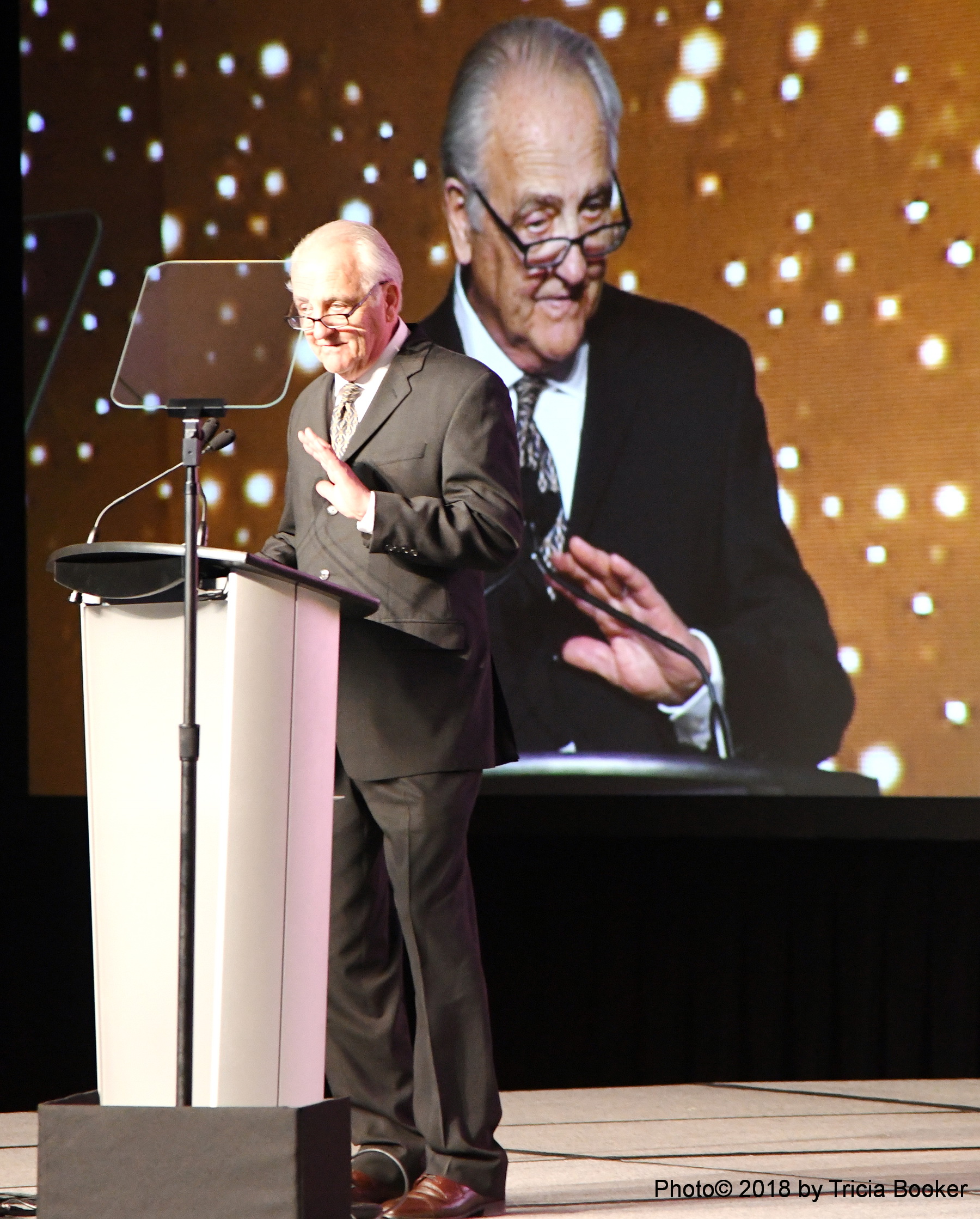
© Tricia Booker
PH: What would you change about the sport today?
JD: We are producing a lot of really great riders. I wish we were producing more horsemen. There are a lot of kids who finish their Junior years with minimal contact with their horses. Feeding them mints is not contact. Not many would know how to take care of a horse after it has been worked.
PH: What do kids learn from being with horses?
JD: Done correctly, there are very few things that teach life lessons better or more often than riding horses. Teamwork. Depend on your partner. Plan. Organize your time. Stay on task. Stay on goal. It takes a lot to become a rider. All those things don’t end when you stop riding. There is a good reason that most of the kids who ride are also excellent students in school.
PH: Is there anything you regret in your career?
JD: I would have had big regrets if I had wanted to do this and instead was in a cubicle somewhere. The horse business is not always easy; there are things that are hard. But we wake up every day, we do what we love, we are out in the air. When I am judging, I am in a beautiful place watching beautiful riders ride beautiful horses. I really can’t say there is anything else I wanted to do.
PH: What one quote speaks to you?
JD: Many years ago, we worked with Maj. Mike Antoniewicz. He was a Polish cavalry officer and captain of a Polish team back in the 1930s. He had three Olympic medals in his pocket. He was a great mentor about how to train horses, how not to take shortcuts.
His rule for training a young horse was: “Be patient. Be kind. Be patient. Be firm. Be patient.” I believe in that.
PH: In addition to writing a biography of Peter Wylde, you wrote a non-horse-related book, A Piece of Chalk, in 2016 about the 1970s busing crisis in Boston, when forced busing was championed as a solution to segregation. What inspired you to write it?
JD: I decided to write A Piece of Chalk because I was a young science teacher at Boston English High School during that time. In recent years, it seemed like the entire desegregation/busing era had been forgotten, especially by the young people I spoke to about it.
PH: What was it like to win the USEF Lifetime Achievement Award?
JD: The call I got from the USEF, it came out of the blue. My first instinct was, “Oh God, what have I done?” This award is a great thing, a thrill. But it hasn’t really changed anything, it can’t make my life any better. I am doing what I love.
This article was originally published in the October 2018 issue of Practical Horseman.






